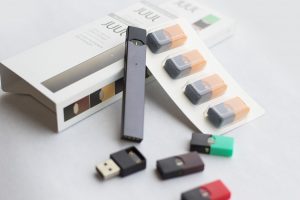 There’s a genuine rush to stem the tide of vaping among youth. It’s mostly in response to overdoses, of course, but to many in the public health arena, it’s long overdue. They’ve worried about the practice for quite some time. At first few paid attention. “It’s still better than smoking cigarettes, right?” they reasoned. “What’s your problem?”
There’s a genuine rush to stem the tide of vaping among youth. It’s mostly in response to overdoses, of course, but to many in the public health arena, it’s long overdue. They’ve worried about the practice for quite some time. At first few paid attention. “It’s still better than smoking cigarettes, right?” they reasoned. “What’s your problem?”
Now the whole country has to pay attention.
Much of the public health response is on the state and local level. There’s work at the Federal level, too, but that’s where the vaping industry is likely to focus its opposition, so anti-vape advocates would prefer a backstop at the lower levels of government. I suspect it’s a good strategy.
Here’s a report on one such effort, in the District of Columbia:
D.C. bills would block e-cigarette sales without a prescription, ban flavored products
From the article: “D.C. lawmakers on Tuesday proposed sweeping measures to curb the rise of youth vaping, including a ban on flavored e-cigarettes and requiring a prescription to buy other electronic smoking products…. A bill…would ban the sale of vaping products at any location that is not a medical marijuana dispensary or a pharmacy.”
I’ve often wondered why vaping wasn’t already by prescription only. All but one or two of the adult vapers I know have health conditions that pretty much required them to give up smoking. That justified the alternative. Why not let the physician decide?
The youth problem is a bit stickier. Michigan and New York have already placed restrictions on the youth-attracting flavored vape cartridges. Sensing trouble, the brain trust at JUUL decided to forgo the marketing of “fruity” and dessert-flavored products (banana, mango, creme, cucumber), but left the popular mint and menthol cartridges off the list. Those are kid-friendly as well. Just hedging their bets, I imagine.
Meanwhile, vape lobbyists insist that ultimately, bans won’t work.
“Gregory Conley of the American Vaping Association said bans on flavored e-cigarettes are misguided because the flavors are also attractive to adults looking to stop using traditional cigarettes.” I discovered that is true for one vaper of my acquaintance, but not for the others. They’re mainly interested in reproducing that little “boost” they once got from a cigarette. They’re not overly concerned with flavor.
Of course, it’s the flavors that are designed to attract kids. In hindsight, they should probably have been restricted from the beginning.
If all this has the feel of a scattershot response to a problem that may already be out of hand, that’s a fair question. We’re faced off against a full-grown, highly profitable industry worried that their massive profits could literally collapse if restrictions pass. Job losses would be formidable, they argue.
Yeah, well, isn’t that because much of the money came from marketing and selling vape devices to vulnerable youth, which they shouldn’t have been doing in the first place? I know they got away with it for years. But now the golden era might be coming to an end.
These folks don’t give up easy. There’s money at stake. I’m told JUUL’s parent company has already replaced the JUUL CEO with a veteran from the tobacco industry.
What does that tell you?











